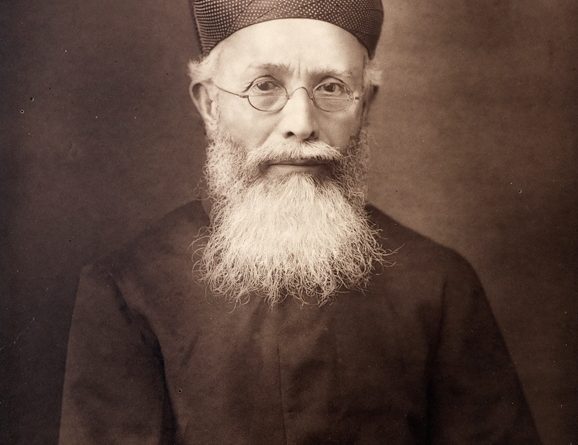Dadabhai Naoroji – 1893 Comments on Indian Opium Revenue
Below is the text of the comments made by Dadabhai Naoroji, the then Liberal MP for Finsbury Central, in the House of Commons on 30 June 1893.
MR. NAOROJI (Finsbury, Central) said, he was not speaking on this question now for the first time. He had been studying it for years, and as far back as 40 years ago he had edited a pamphlet against it. He had studied it from all points of view, and he had come to the conclusion that the opium traffic was a curse both for England and India. In this country opium was declared to be a poison by Act of Parliament, and its sale was under very stringent restrictions. How could that which was a poison here be harmless in other portions of the Empire? As far as he was concerned, he could not believe in the sincerity of those who said that opium used in moderation was not injurious. The question of opium, however, was nothing. It was the mere fringe of the great question of Indian administration under the present system. The pity was not only that time would not allow, but that the subject would not permit, of their entering into the great question which caused all the mischiefs and evils from which India was suffering. These problems—the opium question, the Salt Tax question, and kindred matters—were constantly cropping up, but this House was never able thoroughly to grapple with them. And they never would be properly grappled with until the advice of John Bright was adopted, that statesman having said— That if a country be found possessing a most fertile soil, and capable of bearing every variety of production, and that, notwithstanding, the people are in a state of extreme destitution and suffering, the chances are that there is some fundamental error in the government of that country. He (Mr. Naoroji) maintained that so long as the House did not set itself to find out this fundamental error and endeavour to remove it, all these minor questions, which must be regarded as the fringe of the great problem, could never be dealt with satisfactorily.
To bring the matter to a practical issue, why could not the Commission be instructed to go into the whole question somewhat in the way in which inquiries took place every 20 years under the rule of the East India Company? For then, and then only, would this House understand the mischiefs under which India was suffering; then, and then only, would they know how it was that, after 100 years of the rule of the best administrators, and the most highly-paid administrators, India should be the poorest country in the world. He could adduce testimony from the beginning of the century down to the present time to show that there was nothing but poverty in India. That could not be satisfactory to England, who desired that India should appreciate British rule, though how that could be expected he could not understand, seeing that an income of £6,000,000 or £7,000,000 a year was made by poisoning another great people, and that taxes—the most cruel that had ever been conceived in the whole history of mankind, such as the heavy Salt Tax—were imposed. Such should not be the method of British administration, and such should not be the result of British rule. There was no reason why it should be so. If the existing errors and evils were discovered and grappled with, he had no doubt that India would bless the name of British rule. He would ask the Prime Minister, therefore, to enlarge his Amendment, and to declare in it that the Royal Commission should inquire into the whole condition of India.

